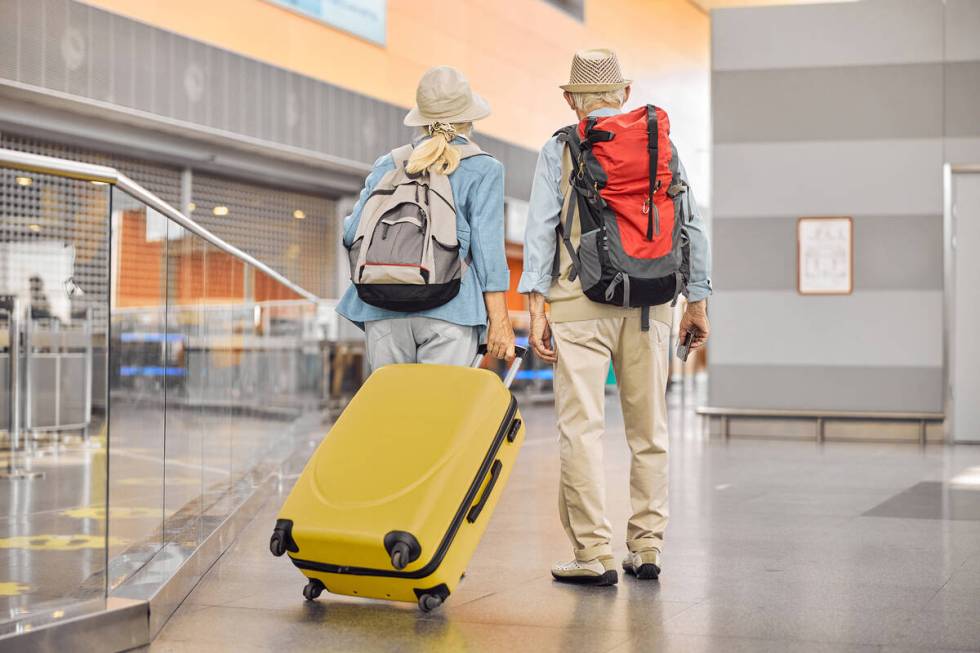Savvy Senior: 4 tips to keep older travelers healthy, safe

Dear Savvy Senior: What tips can you offer retirees with health issues who are planning some trips? We’ve been looking forward to traveling again after staying home the past few years, but my husband has a heart condition and back problems that worry me. — Concerned Wife
Dear Concerned: A dream vacation can turn into a real nightmare if you get ill or injured and aren’t prepared. Before setting out, here are some tips to help ensure a safe and healthy trip for you and your husband.
Get prepared: Before you go, talk with your doctor about your travel itinerary and what precautions you need to take. You should also have your doctor’s contact information with you when you travel, as well as a list of the medications you’re taking in case you need emergency medical care.
It’s also a smart idea to locate health clinics or urgent care facilities near the areas you’re visiting. Your hotel can help you with this or a simple internet search can identify nearby health care services. If you’re traveling abroad, the U.S. consulate or embassy there (go to step.state.gov to enroll your trip) is a good place to get a referral. Or use the International Society of Travel Medicine’s directory at ISTM.org.
If you’re traveling outside the U.S., you also need to find out the health conditions of the country you’re visiting and what, if any, vaccinations or preventative medications are recommended. See CDC.gov/travel or call 800-232-4636 to get this information.
Check your insurance: If you have private health insurance or a Medicare Advantage plan through an HMO or PPO that covers in-network doctors only, check your plan to find out what’s covered if you need medical care when traveling outside your geographic area.
Beneficiaries that have original Medicare are covered everywhere in the U.S. But if you’re traveling abroad, you won’t be covered outside the U.S. and its territories except in rare circumstances, although some Medicare Advantage plans and some Medigap supplemental policies do provide limited coverage. Most private health plans don’t pay health care costs outside the U.S. either. Be sure to check.
Many retirees traveling abroad purchase travel insurance with medical coverage, which may cover expenses if you cancel the trip, need to be treated while traveling or need to be evacuated for medical care. Make sure the policy will also cover your pre-existing medical conditions. To shop and compare policies visit TravelInsurance.com, InsureMyTrip.com or SquareMouth.com.
Organize your medications: Make sure you have a supply of medications to last the entire trip.
If traveling by air, you need to pack your medicine in your carry-on bag, so if your checked luggage gets lost or misdirected you won’t be without. It’s best to keep your medications in their original containers to get through airport security without delays. It’s also a good idea to bring along a note from your doctor that explains why you take these medications, especially if syringes or other medical supplies are involved.
For airport security requirements visit TSA.gov — click on “Disabilities and Medical Conditions.” You can also call TSA Cares at 855-787-2227 with questions about screening policies, procedures and what to expect at the security checkpoint.
Maximize technology: Keep a list of your medications and other important health and medical information handy on your smartphone so you can easily access and share it with emergency health care providers when you’re traveling. Some good apps that can help with this are Backpack Health (BackpackHealth.com) and Capzule (Capzule.com).
Send your senior questions to: Savvy Senior, P.O. Box 5443, Norman, OK 73070, or visit SavvySenior.org.